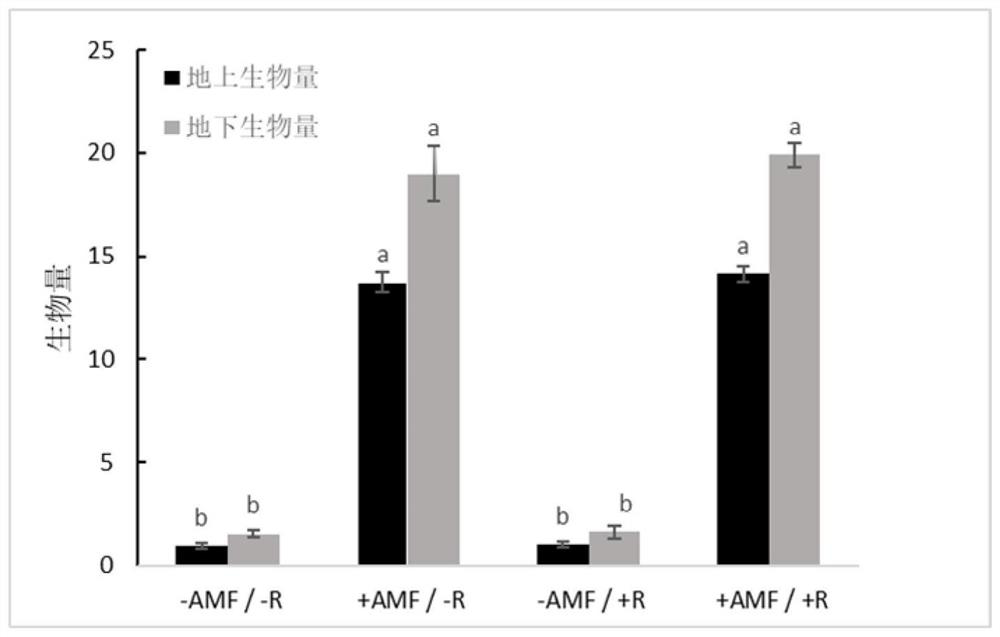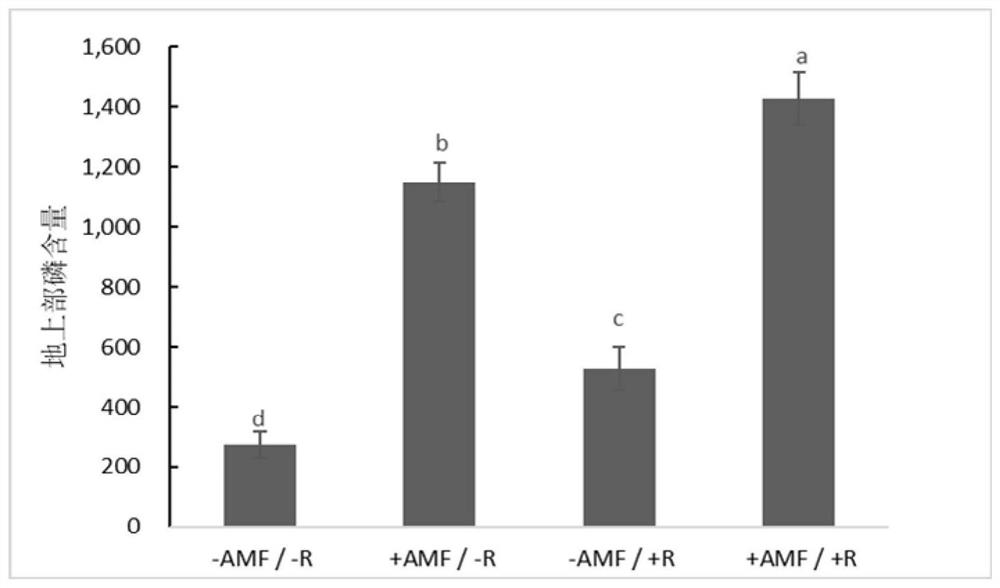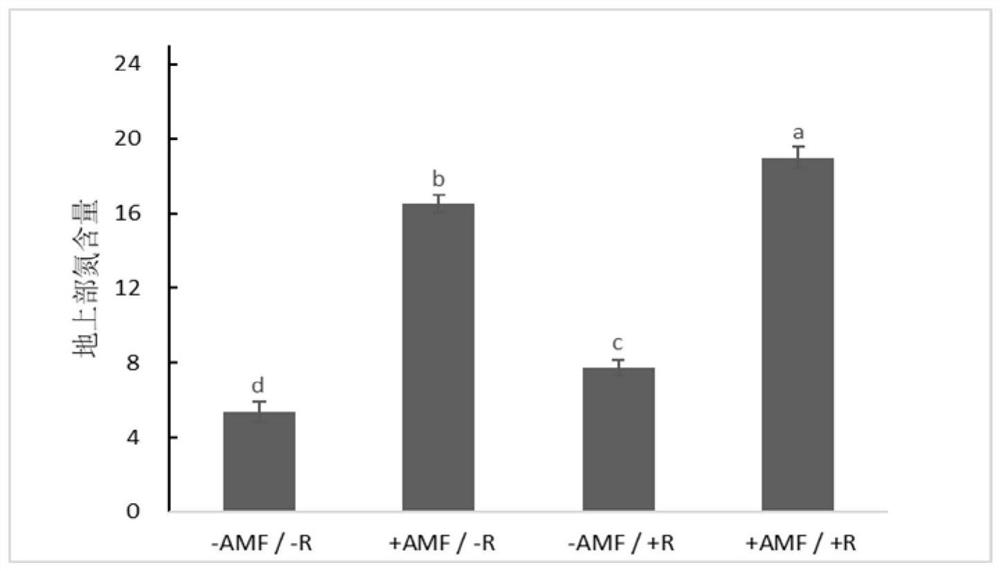Method for promoting growth of legumes using arbuscular mycorrhizal fungi and rhizobia
A technology of arbuscular mycorrhizal fungi and leguminous plants, applied in the fields of leguminous plant cultivation, botanical equipment and methods, horticultural methods, etc., can solve the problems of insignificant increase in grassland yield, disturbance of the ecosystem, and high production costs, and achieve Promote the improvement of grassland production and quality, improve soil structure, and reduce competition
- Summary
- Abstract
- Description
- Claims
- Application Information
AI Technical Summary
Problems solved by technology
Method used
Image
Examples
Embodiment 4
[0041]First, select white clover (Haifa) seeds and alfalfa (WL168) seeds with full grains; then, soak the selected white clover (Haifa) seeds and alfalfa (WL168) seeds in 75% ethanol for 1 min, and use After rinsing with distilled water, soak in 5% sodium hypochlorite for 2 minutes, then rinse with distilled water and place on sterilized vermiculite for germination culture. During the cultivation process, water once every 2 days to ensure sufficient water. After the seedlings emerged and continued to cultivate for 25 days to obtain white clover and alfalfa seedlings, then the white clover and alfalfa seedlings were transplanted into several flower pots respectively. First, the soil 15 cm below the ground was selected and filtered through a sieve, and then the The filtered soil and river sand are mixed in a ratio of 1:3 by weight and used as a substrate after high-temperature sterilization and cooling, and then put 2 / 3 of the substrate into each flowerpot and place it on the sub...
PUM
 Login to View More
Login to View More Abstract
Description
Claims
Application Information
 Login to View More
Login to View More - R&D
- Intellectual Property
- Life Sciences
- Materials
- Tech Scout
- Unparalleled Data Quality
- Higher Quality Content
- 60% Fewer Hallucinations
Browse by: Latest US Patents, China's latest patents, Technical Efficacy Thesaurus, Application Domain, Technology Topic, Popular Technical Reports.
© 2025 PatSnap. All rights reserved.Legal|Privacy policy|Modern Slavery Act Transparency Statement|Sitemap|About US| Contact US: help@patsnap.com



